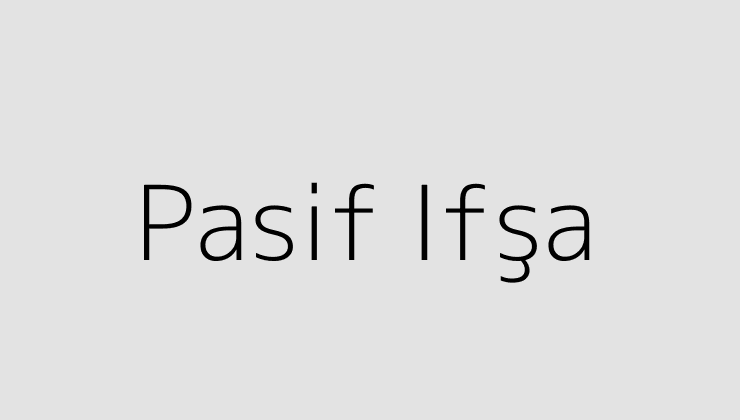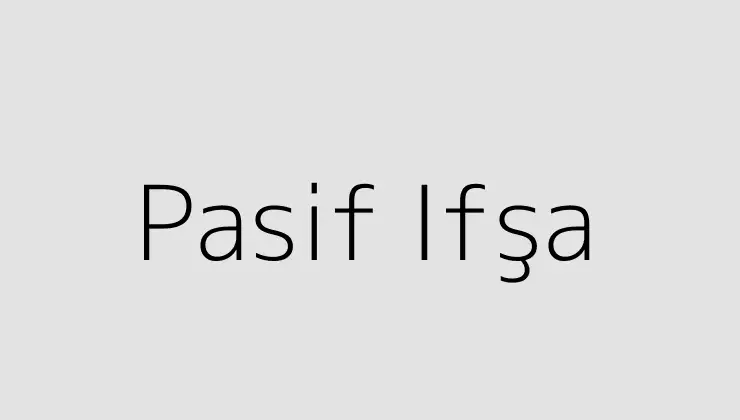“Haketmeyen insanların mağduriyetini ortaya çıkarmak adına pasif ifşa yöntemiyle açığa çıkardığımız gerçekler. İşte istediğiniz deliller, belgeler ve kanıtlar burada. Detayları buradan inceleyin.”

Pasif Ifşa
What is Pasif Ifşa?
Pasif Ifşa is a type of cyberbullying where someone shares private and sensitive information about another person on the internet without their consent. This can include personal photos, videos, messages, or any information that is considered private or confidential.
How Does Pasif Ifşa Happen?
Pasif Ifşa can happen in a variety of ways. It can be through hacking an account, stealing or accessing sensitive information, or through a mistrusted third party. Many times, however, it can occur through social media where a picture or video is shared without the person’s consent.
The Consequences of Pasif Ifşa
Pasif Ifşa can have very harmful consequences for the victim. It can lead to psychological and emotional distress, social isolation, and can even lead to suicide in extreme cases. The victim can feel violated, powerless and ashamed.
How to Protect Yourself from Pasif Ifşa
Here are some ways to protect yourself from Pasif Ifşa:
- Never share personal information or sensitive photos or videos with anyone you do not trust.
- Use strong passwords and update them regularly.
- Be careful when using public Wi-Fi or accessing your account from public computers.
- Report any suspicious activity or any Pasif Ifşa to the appropriate authorities.
What to Do if You are a Victim of Pasif Ifşa
If you find yourself a victim of Pasif Ifşa, here are some steps you can take:
- Collect evidence such as screenshots, messages, or any other data that can prove the Pasif Ifşa took place.
- Report the incident to the appropriate authorities, such as the police or the platform where the Pasif Ifşa occurred.
- Seek support from friends or family and consider seeking professional help from a therapist or counselor.
- Contact a lawyer or legal advisor for advice and to take legal action.
The Importance of Cyber Ethics
It is important to understand the ethical implications of our actions online. Cyber ethics focus on how we interact with each other in the digital world, and how our actions can affect others.
Conclusion
Pasif Ifşa is a serious issue that can have life-altering consequences for the victim. It is important to understand the dangers and take steps to protect ourselves and others. Remember to always practice good cyber ethics and be respectful and mindful of others’ privacy.
FAQs
1. What is Pasif Ifşa?
Pasif Ifşa is a type of cyberbullying where someone shares private and sensitive information about another person on the internet without their consent.
2. How can Pasif Ifşa happen?
Pasif Ifşa can happen through hacking, accessibility to sensitive information, mistrusted third parties or through social media.
3. Can Pasif Ifşa have harmful consequences?
Yes, Pasif Ifşa can lead to psychological and emotional distress, social isolation, and can even lead to suicide in extreme cases.
4. How to protect oneself from Pasif Ifşa?
You can protect yourself from Pasif Ifşa by never sharing personal information or sensitive photos or videos with anyone you do not trust, using strong passwords, being careful when using public Wi-Fi, and reporting suspicious activity to the appropriate authorities.
5. What to do if a victim of Pasif Ifşa?
If you are a victim of Pasif Ifşa, steps you can take include collecting evidence, reporting the incident to authorities, seeking support from friends or family, seeking professional help from a therapist, and contacting a lawyer or legal advisor for advice and to take legal action.


























